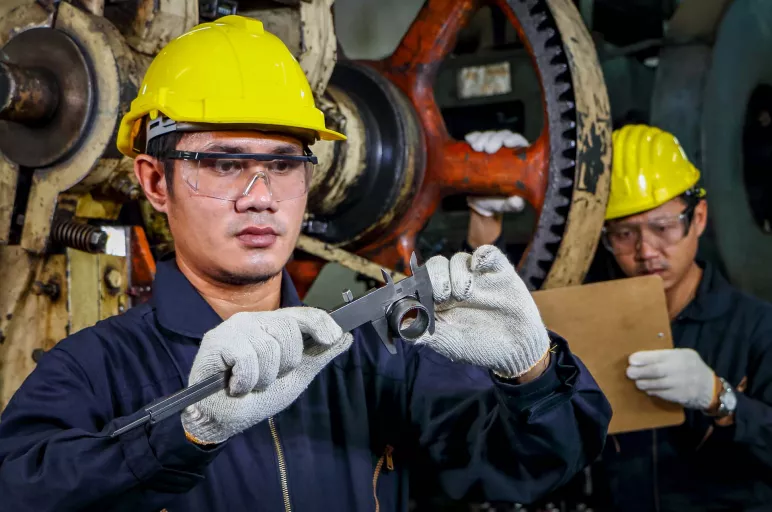
How Southeast Asia is Supporting the MRO Industry
- MRO industry growth in Singapore, Malaysia and the Philippines is spurred by tax incentives, subsidies, skill development and certifications
- Duty-free import of machines, equipment and spares is benefitting suppliers and buyers by keeping costs in check
- Amid government support, companies are expected to reposition themselves and improve their product and service mix
November 27, 2021 | MRO
The growth of the maintenance, repair and overhaul (MRO) industry is often linked to country-specific strategies that trigger innovation, advance workers’ skills, support incentives and rebates on production.
The absence of a favorable policy framework can be a major impediment to the growth of MRO services.
For industries such as aviation or mining, a multi-layered tax regime or high import duties on spare parts and components may hamper the growth of three components of MRO services delivery: capital, consumables and personnel.
Other issues that impact the MRO industry can be absence of a just regulator, laws relating to capital investments or government support to build quality institutions offering personnel training, global certifications, and skill development programs, regional labor laws and policies.
However, partnership programs and ecosystem development strategies in various Southeast Asian countries provide encouraging examples of attempts to stimulate MRO growth.
Government incentives and initiatives play a large role in luring foreign investment and extending a helping hand to local participants and companies.
Singapore and the Philippines lead by example
Singapore has gradually established itself as a supporter of the MRO industry. The country’s aerospace industry alone contributes up to 10% of the global MRO output.
Its co-investment program to invest with global companies along with local enterprises in joint ventures and strategic projects has gained attention.
These investments encourage private R&D, development of human resources and expansion of innovative infrastructure.
Moreover, Singapore’s Economic Development Board (EDB) plans to facilitate local as well as global companies in terms of providing incentives, subsidies and grants to companies investing in Singapore.
For example, its Development and Expansion Incentive (DEI) includes a concessionary tax rate of 5% or 10% to push market players to enhance their capabilities and expand their operations.
The Philippines’ Investment Priority Plan includes manufacturing of industrial goods, machinery and equipment, including parts, components and other MRO-related services. To boost skill development, it has also established a Technical Education and Skills Development Authority.
The country also provides tax and duty exemptions on imported spares and machinery. For example, import of production equipment and machinery, spare parts and other components are tax- and duty-free.
Similar initiatives are underway in Malaysia and Thailand to provide funding, human resource development programs, income tax exemptions and rebate for government duties.
Reform of labor laws has also been an important tool in recent years to address the negative effects of global and regional financial and economic crises. In global economies, labor law reforms have been used as levers to sustain employment and increase manpower efficiency.
Similarly, to meet obligations to global standards and institutions, governments can make various training and certifications mandatory, which impacts MRO industry labor as well.
For example, Malaysia requires the market players’ products and personnel to be certified by SIRIM and other international bodies to ensure quality and safety.
But in some regions, government policies can be detrimental to the growth of the industry, and the rigidity of these laws can make the situation even worse.
Conclusion
Given the flexibility that Asian governments provide to facilitate positive regulatory changes, the MRO industry in the Asia-Pacific has grown at a fast pace. Due to government support, companies are expected to reposition themselves and improve their product and service mix to realize larger business value.
Industry 4.0 is another driver of incentives by government bodies to facilitate the trade of labor and material, enhance foreign investments by a substantial margin, and create a growth regime for emerging as well as existing MRO industry players.



